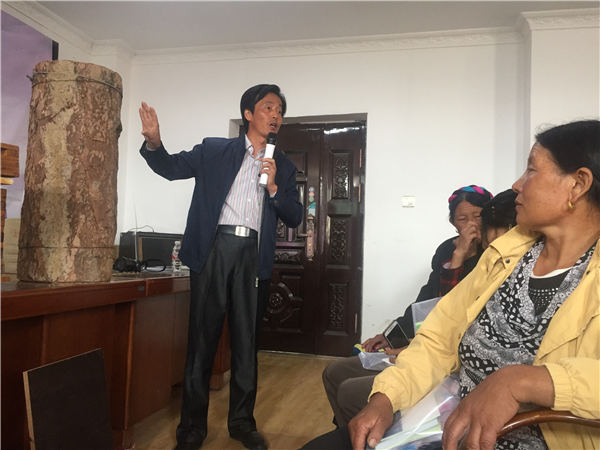
An expert gives a lecture on beekeeping to the residents of Jiagong village of Yangla township. [Photo by Shi Wenzhi/China Daily]
Another reason why Tibetan carpet-weaving is being promoted is to preserve the traditional handicraft. With the relocation, the locals no longer need Tibetan carpets to protect themselves from the cold, which led to the gradual decline of this traditional craft.
"With modern machines and practices brought in by experts from different regions, the traditional handicraft is seeing innovation," Du says.
Separately, another training course on beekeeping is being offered to the locals in Yangla township, located in the northeastern part of Dechen county, where over 90 percent of the residents are involved in the industry.
Before starting the course, the experts who were to run it visited farmers in Jiagong village and researched beekeeping methods there. And they found that Yangla township has an ideal environment and strong potential for bee-keeping, but there was a lack of technological support, management methods, and funding.
Of the 42 participants selected for the first course, more than half were female, consistent with the aims of the UN program.
Commenting on the male-female balance, Ma says: "In our overseas projects, we require a certain number of male participants, so as to break gender conventions.
As for the response from the community, Sun says the villagers are happy with the courses.
"The training has fueled the people's enthusiasm. Everyone seems interested and motivated."
The CGF, established in 2004 by the United Nations Theme Group on Gender, works on empowering women and reducing gender inequality in China, by offering financial support to a wide range of projects.
Speaking about the implications of this project, Ma says, "It shows me the importance of offering training to women. The ecology of this region is also worth taking into account."
|






7740f3b5-9ecb-438e-9052-76cb2d4bb671.jpg)

